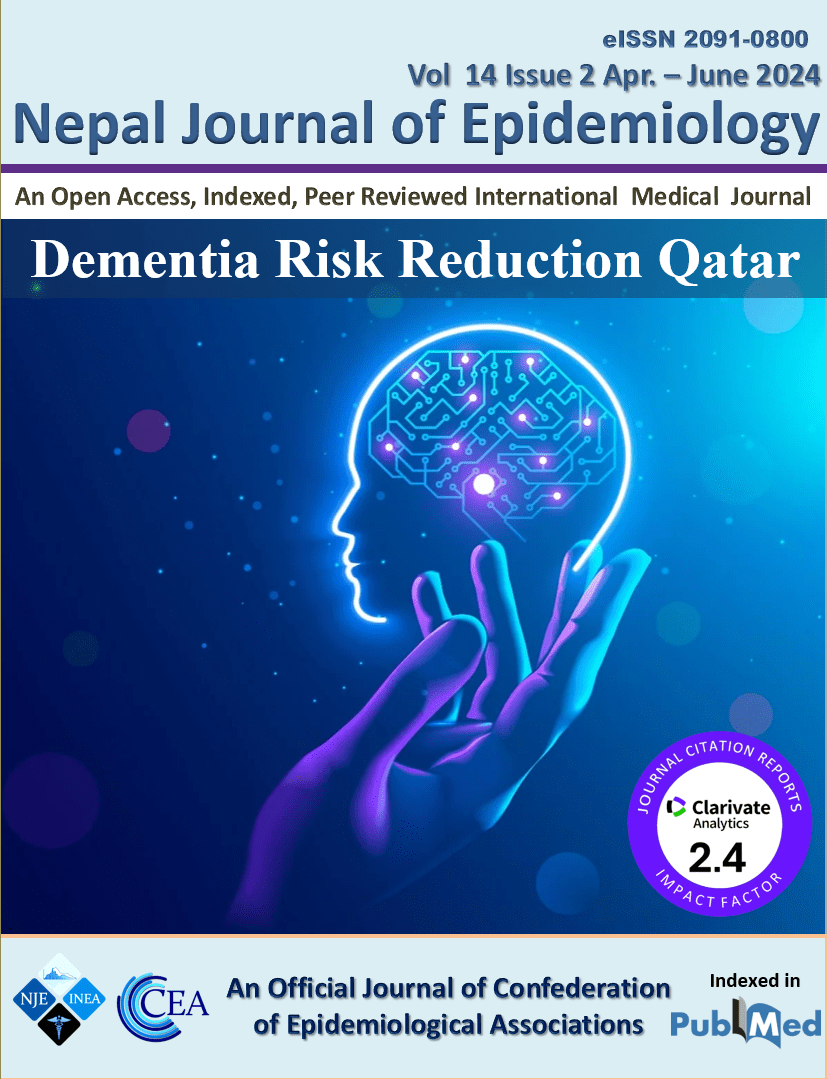One year analysis of Prospective Memory Clinics Registry in Qatar: A Critical Tool for Dementia Research and Policy Planning
DOI:
https://doi.org/10.3126/nje.v14i2.69364Keywords:
Memory Clinic, Registry, Dementia, Dementia Risk Reduction, QatarAbstract
Background: The Global Dementia Observatory (GDO) is a monitoring and accountability tool for the Global Action Plan on Public Response to Dementia 2017–25. Evidence from dementia registries may be utilized to better address WHO efforts in member countries, as well as to improve clinical practice and public health policy. The goal of this study was to analyze one-year data from a prospective memory clinic registry.
Methods: This study was a baseline analysis of prospective memory clinics registry data of Qatar from January 1, 2023, through December 31, 2023.
Results: This study investigated the demographic, clinical, and lifestyle characteristics of 464 participants who were enrolled in memory clinics. Mild neurocognitive disorders were the most prevalent diagnoses in both sexes, affecting 61.5% of male patients and 63.7% of female patients. Dementia was slightly more common in men (19.8% vs. 18.9%), although delirium was more common in women (1.9% vs. 0%). In terms of risk factors, the analysis revealed that females were more likely to be obese (36.8% vs. 16.7% in males), while males had higher rates of diabetes (61.1% vs. 51.9% in females), hypertension (69.4% vs. 62.7% in females), and smoking (17.1% vs. 3.8% in females).
Conclusion: The findings of this study highlight the differences in dementia risk factors between genders and races, highlighting the need for customized interventions. Furthermore, the registry is a great resource for policymakers and healthcare professionals, providing evidence-based suggestions to improve dementia care, increase the well-being of patients and caregivers, and maximize resource allocation.
Downloads
Downloads
Published
How to Cite
Issue
Section
License
Copyright (c) 2024 CEA & INEA

This work is licensed under a Creative Commons Attribution 4.0 International License.
- Upon acceptance Copyright on any research article is transferred in full to the Confederation of Epidemiological Associations (CEA) and International Nepal Epidemiological Association (INEA). The copyright transfer includes the right to reproduce and distribute the article in any form of reproduction (printing, electronic media or any other form).
- Articles in the Nepal Journal of Epidemiology are Open Access articles published under the Creative Commons CC BY License (https://creativecommons.org/licenses/by/4.0/)
- This license permits use, distribution and reproduction in any medium, provided the original work is properly cited.




